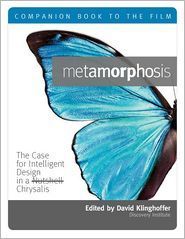Discovery Institute's Blog, page 457
November 2, 2011
Haught v. Coyne: The Debate of the Century (Not)
University of Chicago biologist Jerry Coyne has been engaged in a poisonous exchange with Catholic theistic evolutionary theologian John Haught of Georgetown University. The point of controversy was, at first, the compatibility of science and religion -- on which Coyne and Haught debated last month at the University of Kentucky. Then it turned into a nasty dustup about whether the video of the debate would be released, as Coyne wished and Haught didn't. When finally Haught gave his consent...
Why the "Onion Test" Fails as an Argument for "Junk DNA"
Briefly stated, the often cited "onion test" observes that onion cells have many times more DNA than human cells do. And since the onion is considered to be relatively simple as compared to us, this discrepancy -- it is argued -- can only be accounted for if the preponderance of its DNA is, in fact, junk or non-functional. Let's see whether the concept really holds any water.
The term "onion test" was first coined in April 2007 by the Canadian evolutionary biologist and genome...
At New Scientist, the Usual Reportorial Indifference to Facts
When you're a reporter for a liberal publication you can say whatever you like about the ID/Evolution debate, however disconnected from reality, and get away with it. Nicely illustrating this general principle, New Scientist comes across with this beauty. In a story titled "Science in America: Selling the Truth," lamenting the perversity of Republicans with their primitive scientific beliefs on climate change and the rest, Peter Aldhous writes:
How a message is framed in relation to the...
November 1, 2011
Darwinian Psychologist David Barash Admits the Seeming Insolubility of Science's "Hardest Problem"
Our local U. of Washington psychology professor and Darwin advocate David P. Barash comes from the "My Back Hurts Therefore It Wasn't Designed" school of evolutionary thought, as he wrote in an L.A. Times op-ed a few years back ("Does God Have Back Problems Too?"). It's a nice surprise, then, to find him confessing what he regards as the seeming impossibility of imagining a material explanation for the "hardest problem in science."
Which is? "How the brain generates awareness, thought...
A Mathematician Explains the Irreducible Complexity of Metamorphosis
The new documentary Metamorphosis presents, as ENV readers will know, the case for intelligent design in a powerful way. The metamorphosis from caterpillar to butterfly is a spectacular example of "irreducible complexity," and here is one way of explaining why that's so.
In my 2000 Mathematical Intelligencer article "A Mathematician's View of Evolution," I compared the development of the genetic code of life with the development of a computer program, such as my finite element code PDE2D. I...
We Get Poor-Mouthed by the National Center for Science Education
To "poor-mouth" means using claims of poverty to try to manipulate other people. Paleontologist Donald Prothero visited the offices of the National Center for Science Education -- our Darwin-lobbying friends whom we love more and more by the day -- and came back with a fundraising pitch for the NCSE that made me think of the wonderful Monty Python "Four Yorkshiremen" skit. In the skit, four well-to-do gents try to outdo each other with increasingly absurd tales of childhood poverty.
Writing...
October 31, 2011
"More Philosophical than Scientific": Parsing a Rationalization
The apology published in the November issue of Applied Mathematics Letters, for withdrawing my accepted article "A Second Look at the Second Law" at the last minute, says it was withdrawn "not because of any errors or technical problems found by the reviewers or editors but because the Editor-in-Chief subsequently concluded that the content was more philosophical than mathematical." This might have been a valid reason for rejecting my article, since the level of mathematics is lower than in t...
Fact-Checking Wikipedia on Common Descent: The Evidence from Biogeographical Distribution
We have now reached the fourth part of my series on Wikipedia and the evidence for common descent. In previous entries, I discussed Wikipedia's arguments for common descent based on comparative physiology / biochemistry, comparative anatomy, and paleontology. Now I am going to address the arguments from biogeographical distribution. Biogeography is essentially the study of the geographical and historical distribution of species in relation to one another. The argument holds that species are r...
My Back Hurts Therefore It Wasn't Designed
At Huffington Post, John Blumenthal wheels out the venerable and vacuous "bad design" argument as if he were the first to think of it:
Thanks to Michele Bachmann, the tired concept of Intelligent Design has once again become a topic of conversation among Creationists, most of whom, ironically, often sound like Neanderthals. In case you don't know, this boneheaded theory claims that the human body is simply too remarkable to have come into being through millions of years of haphazard...
October 30, 2011
Metamorphosis, the Physical Book, Materializes
 We've been getting downloads by the thousands of the Discovery Institute Press e-book Metamorphosis: The Case for Intelligent Design in a Nutshell, a companion to the Illustra documentary, edited by ENV's David Klinghoffer and introduced by bestselling novelist Dean Koontz. It's beautiful to look at online. But to really, really appreciate the gorgeous photos and savor the important and insightful essays by Discovery Institute, Biologic Institute and other scientists and historians, you...
We've been getting downloads by the thousands of the Discovery Institute Press e-book Metamorphosis: The Case for Intelligent Design in a Nutshell, a companion to the Illustra documentary, edited by ENV's David Klinghoffer and introduced by bestselling novelist Dean Koontz. It's beautiful to look at online. But to really, really appreciate the gorgeous photos and savor the important and insightful essays by Discovery Institute, Biologic Institute and other scientists and historians, you...
Discovery Institute's Blog
- Discovery Institute's profile
- 15 followers



